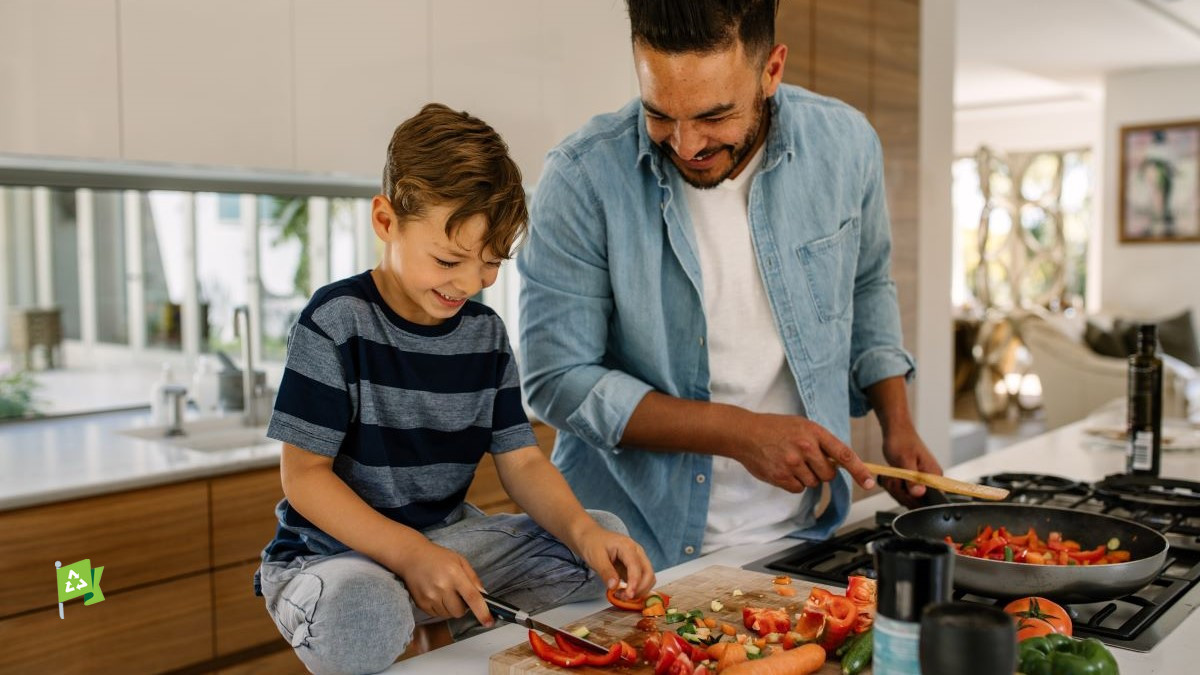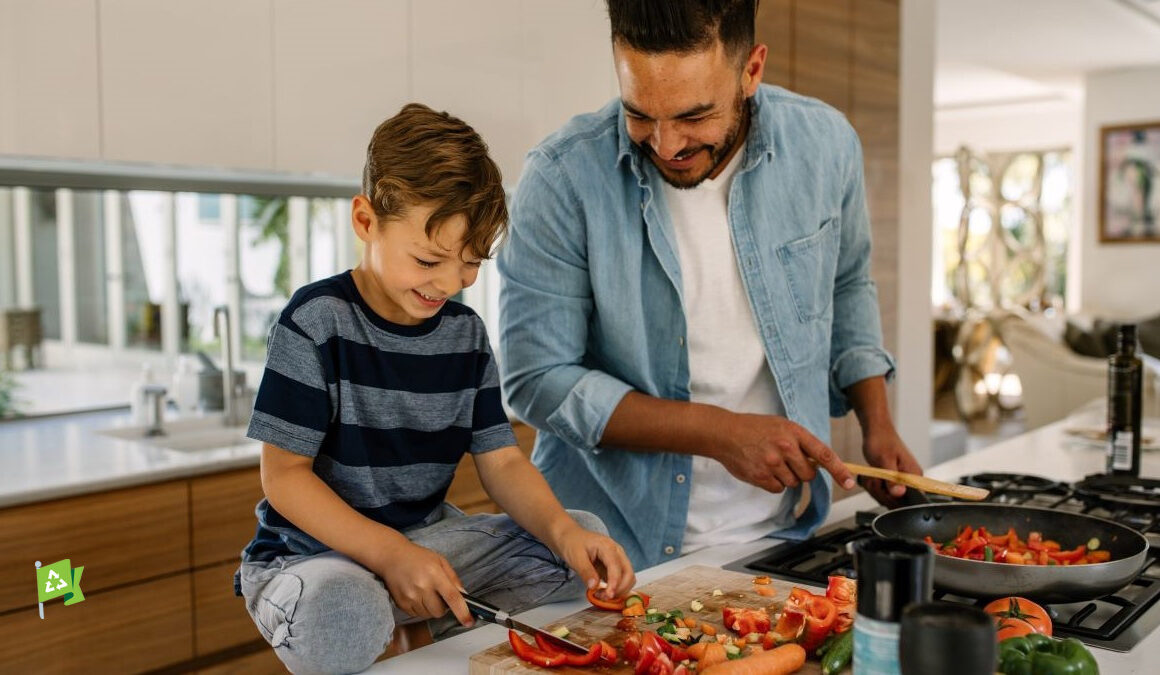Earth Action: Cook Ahead – Earth911

Earth911 is honoring the 52 years of Earth Day with 52 Actions for the Earth. Each week through Earth Day 2023, we will share an action you can take to invest in the Earth and make your own life more sustainable. It’s nearly impossible to cook every day. But take-out and frozen foods have a lot of environmental drawbacks. This week, you can take action for the Earth by cooking ahead.
Action: Cook Ahead
The Problem With Quick Dinners
Processed foods have a big environmental impact. Frozen dinners are often less healthy than food cooked at home, and meals prepared at restaurants usually are too. Frozen foods – even the ones in cardboard boxes – generate a lot of nonrecyclable plastic packaging and are also energy-intensive, requiring refrigeration along the distribution chain from the manufacturer to the grocery store to your home freezer. Life cycle analysis has confirmed that homemade meals have a much smaller footprint than industrially prepared meals.
Take-out containers generate a lot of waste. Food is wrapped in plastic or aluminum foil, then placed into paper, plastic, or Styrofoam containers, and then put into paper bags and/or plastic bags for carrying. Besides the packaging waste, take-out generates waste with plastic cutlery, wooden chopsticks, disposable napkins and straws, and individual sauce and seasoning packets. Nearly all of it ends up in the landfill. Restaurant food loss rates are high, and more food is wasted as customers throw away uneaten portions of oversized restaurant meals. Take-out also generates greenhouse gas emissions from transportation, either by you or a delivery driver.
The Benefits of Home Cooking
When you store food prepared in your own home, you can choose reusable containers like glass jars and other plastic-free options. Cooking at home gives you more control over portion size, which reduces food waste. Planning ahead reduces food waste further. When you cook at home and freeze or refrigerate leftovers, you only keep food frozen for a few days and no extra car trips are required for take-out or delivery. Cooking ahead gives you the benefits of homemade without the inconvenience.
Cooking Ahead
Some people like to take an afternoon on the weekend to prep meals for the whole week. But if you don’t like spending such a big block of time in the kitchen or think a week of pre-cooked meals feels like a week of leftovers, there are less extreme options. It only takes a few minutes reviewing your schedule to see which days you’ll have time to cook and when you’ll be too busy. Cook double batches on less busy days (which also makes your stove more efficient) and eat leftovers the other days.
If you’re not a fan of leftover dinners, try the “overlapping ingredients” method of weekly meal planning. For example, you might roast a whole chicken the first day. Chop up leftover chicken and extra vegetables to make a salad the next day, then use the extra precut vegetables for quick tacos on day three.


